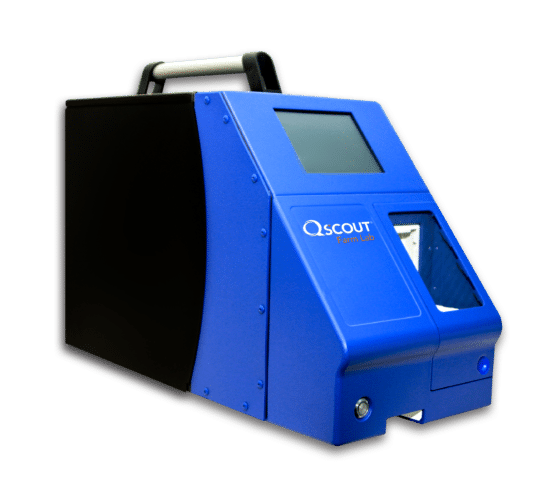Herd of AI startups milking the Internet of Cows
Companies worldwide are pioneering AI in a cattle industry revolution.
These pioneers in what’s become known as the Internet of Cows are using image recognition algorithms to help detect cattle health issues and serve up analytics for improvements to farm management in the multibillion-dollar dairy and beef markets.
Companies dotting the globe — in Israel, Canada, Ireland, Amsterdam, India and the U.S. — have been focused on boosting cattle production as AI has come to the fore of agriculture in recent years.
“We have an Internet of Things approach,” said Joy Parr Drach, CEO of Advanced Animal Diagnostics. “Point of care for us is point of cow.”
Morrisville, N.C.-based AAD has a commercial portable dairy testing device and is in trials with its device targeted at the beef cattle industry. AAD uses AI to analyze images of fluorescing white blood cells in a drop of milk or blood.
Using deep learning algorithms, the device determines quantities of each type of white blood cell, translating the results into animal health status. AAD processes animal tests on its servers running NVIDIA GPUs, tapping machine learning to differentiate infection-fighting cells.
AAD’s QScout farm testing device aims to predict animal performance and detect infections in beef cattle before they appear. Its internet-connected portable lab can shuttle results to the cloud and provide alerts to red flags in the health of cows.
Its testing unit can also keep tabs on the health of cows for milk production. The testing device can monitor for elevated types of certain white blood cells in cows, an indicator for mastitis, which is inflammation of the udder’s mammary gland that can threaten milk production. Using these new technologies can provide early detection and enable farms to head off the condition in some cases and avoid use of antibiotics.
The startup’s technology promotes reduced use of antibiotics in cows while ensuring health and welfare of those animals who need treatment, said Parr Drach.
Parr Drach is no stranger to cattle farming. “My weekend job is as a livestock producer. It’s a family business,” she said.
Deep Learning Drives IoC
Like AAD, SomaDetect is trying to improve milk production with the use of AI. The startup, based in Fredericton, New Brunswick, Canada, and Buffalo, New York, uses optical sensors to produce images from light-scatter patterns in milk. SomaDetect applies its deep learning models to analyze the images.
SomaDetect has trained its convolutional neural network on lab data — basically, using all the previously taken cow health data and feeding it into its model. The database it has developed keeps a set of images taken from its sensors as well as the lab results, and it continues to be fed to further develop its algorithm.
The startup is measuring fats and proteins, as well as for the onset of mastitis indicated by an elevated white blood cell count, reproductive status and antibiotic residuals.
“Deep learning is really what unlocks this,” said Bethany Deshpande, co-founder and CEO at SomaDetect. “We’re using deep learning to provide critical data to the farmer so they can improve and optimize their operation.”
SomaDetect’s technology is in use at Cornell University and the company has 20 farms identified as early adopters for installations at the end of 2018. Customers purchase its sensors and license the use of its algorithm, providing revenue for the startup.
Fitbit for Cows
Amsterdam-based Connecterra is taking a different tack with cows: The startup has a Fitbit-for-cows business. The company’s sensors for cows capture data that can help detect for eating disorders, heat stress and fertility. The information can be uploaded to the cloud for analysis and predictions of cow behavioral patterns.
Similarly, Israel-based Afimilk offers a smart collar for cow tracking. Its device, called Silent Herdsman, monitors the heat and other health signs of cows. Afimilk provides health-tracking software and alerts to potential indicators of problems.
India-based Stellapps, which offers a cloud-based farm and herd management system, tracks cow metrics including fertility and steps of activity with its tracking devices, promising internet-based health alerts and increased productivity for farms.
The emergence of the internet of cows sector has given farmers more options to help manage the health of their cattle. For example, most cows get milked twice a day, but if you know one is getting mastitis, you can milk the cow four times a day to help flush it out and avoid antibiotics.
“Deep learning has allowed us to exploit this technology to a level that years ago never would have been possible,” said Deshpande.




